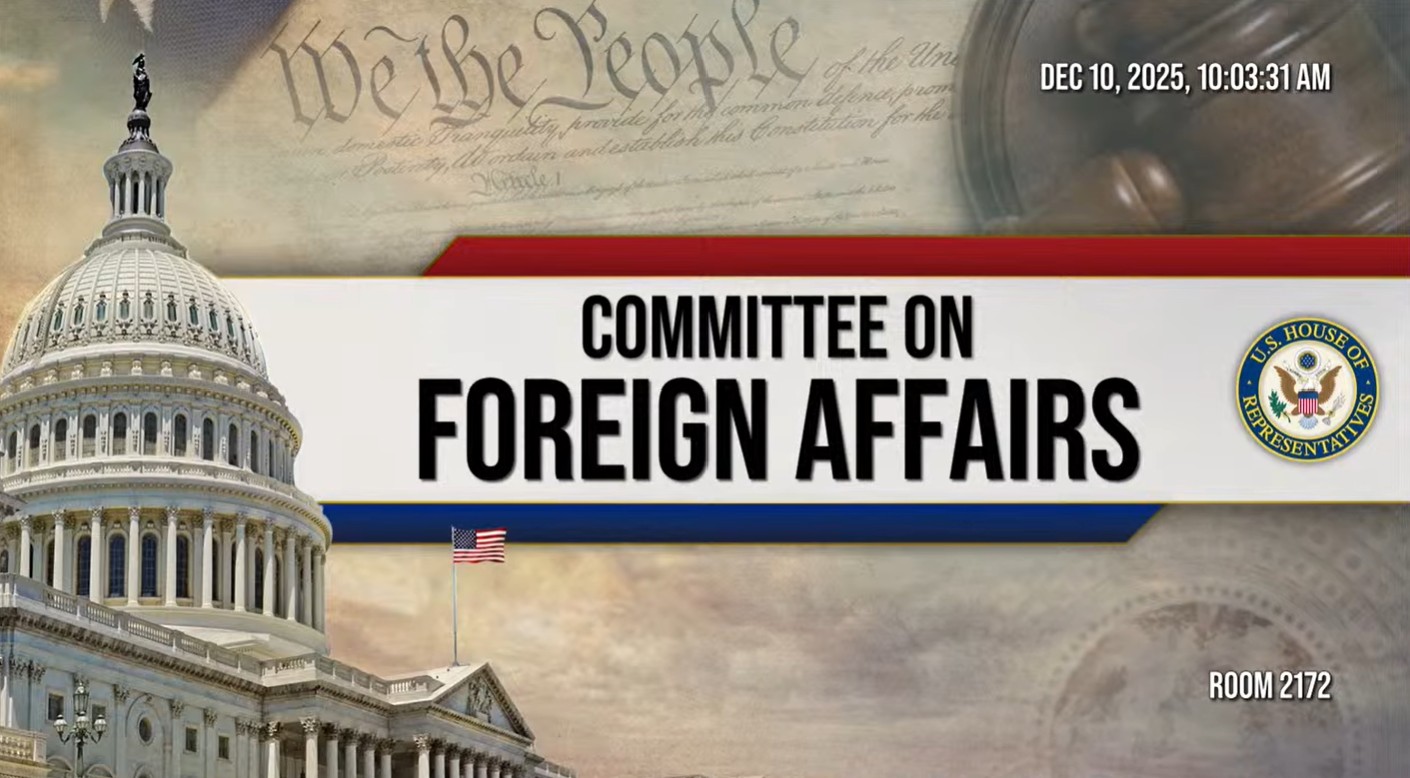By Andrew Tucker, Director, thinc.
In 2012 the UN General Assembly passed a resolution granting Palestine “non-member Observer state status”, and the International Criminal Court recently decided that it sees Palestine as an ICC State Party – even though both entities acknowledge that “Palestine” is not (yet) a state in the traditional sense.
Should other states follow this example and “recognize” Palestine as a state?
First, we need to define the challenges and issues we are facing. Let’s assume that-
- the Israeli military administration in the West Bank that has been in place since June 1967 cannot and should not continue indefinitely;
- the Palestinians deserve independence and autonomy;
- a peace agreement between Israel and the PLO is needed; and
- all UN member states have an obligation to support Palestinian self-determination, and to help solve the political stalemate.
In this article I argue that recognizing “Palestine” as a state before it is in fact a state will not help resolve the issues. In fact it will probably worsen the problems.
There are three main reasons: (a) recognition as a state of an entity that is not a state conflicts with international law; (b) it does not address the true causes of the conflict; and (c) it makes a peace agreement less, not more, likely.
The importance of statehood
The first point is that the conventional criteria of statehood matter. It is true that an increasing number of people argue that the modern, Euro-centric international legal order is no longer relevant, that traditional concepts of statehood and sovereignty are outdated and need to be replaced. They often point to the many examples of less-than-states acting on the international stage (e.g. Taiwan, Hong Kong, Cook Islands).
But, at least for the time being, the international legal order is built on the foundation of sovereign states meeting the traditional criteria of statehood. And for good reason.
The criteria of statehood are reflected in the ‘Montevideo Convention on the Rights and Duties of States’ (1933). Arguably the most important requirement for statehood is independence. An entity cannot qualify as a state if it is subject to the authority of any other State or group of States. Put another way, an entity is only a state if it has an independent government that is both willing and able to govern the people in its territory. This is important, to ensure stability in international relations.
Effective and independent government
The fact is, there is no effective and independent Palestinian government. First, the Palestinian Authority is not an independent government; it was created by the Olso Accords as an interim solution. It has limited powers, and remains dependent on Israel. Second, it is not effective. This is not, as often claimed, the fault of the occupation. Israel is not responsible for the fact that the Palestinian Authority has (despite massive financial support from the EU and many other states) been unable to build an adequate educational or health infrastructure; that Palestinian elections have not been held since 2006, mainly due to the ongoing, internal conflict between Hamas and Fatah; or that the Palestinian leadership continues to devote significant resources to incitement to terror, such as payments to the families of terrorists (“pay to slay”).
Only states can be recognized
Recognition is only meaningful in relation to a State that already exists. As Professor James Crawford has said in his authoritative book The Creation of States in International Law: “An entity is not a state because it is recognized; it is recognized because it is a State.” In other words, recognition only makes sense if it is clear that an entity constitutes a state under general principles of international law.
A peace agreement
It is certainly true that the Palestinians aspire to statehood. It may even be that they have, in some sense, a “right to statehood”. But a right to statehood is not unconditional. Outside the context of decolonization, no entity or people group has an absolute right to statehood. Peoples seeking independence can only achieve statehood by means of negotiation and cooperation, so as to ensure that the separation does not conflict with the sovereignty of existing States – including the rights of those states to territorial integrity.
In the 1990’s Israel and the Palestinians committed themselves in the Oslo Accords to a process for such negotiations. Granted, negotiations have stalled, but these agreements are nevertheless still binding. Amongst other things, the Oslo agreements divided the territories into Areas A, B and C, and established the Palestinian Authority (PA). The PA is not a state. Whether or not it will result in Palestinian statehood depends on many factors, including the outcome of the “final status” negotiations on the very sensitive issues that still remain to be negotiated. These include: Jerusalem, refugees, settlements, security arrangements, and borders. Recognizing “Palestine” as a state before these negotiations have been completed effectively amounts to a breach of these agreements.
UN resolutions indicating that “Palestine” is a state do not change this reality, because UN resolutions are non-binding, political statements, not legal instruments.
Territory
And then there is the criteria of a “defined territory”. What would the territory of a “State of Palestine” encompass?
Palestinian statehood may not be allowed to infringe Israel’s right under the UN Charter to “territorial integrity”. Israel claims sovereignty over East Jerusalem. It argues that as a result of the Mandate for Palestine, sovereignty in the rest of the West Bank is “in abeyance” and can only be resolved by agreement. These are perfectly respectable claims. The Palestinians, on the other hand, claim sovereignty over all of the territories which Israel took control of in 1967. There are thus conflicting claims, which can only be resolved by means of an agreement reached through negotiations. Israel’s claims cannot simply be swept aside. Neither the international community nor any international tribunal can resolve this dispute; not even the International Court of Justice, in its 2004 Wall Advisory Opinion, dared to opine on the sovereign status of these territories.
The argument that Israel cannot have a legitimate claim to any of these territories has never been substantiated. Two arguments are usually made. The first is that these territories are occupied, and thus cannot belong to Israel. This is a fallacy. To be sure, neither the use of force nor occupation can confer sovereignty, but the law of occupation has nothing to say about the pre-existing sovereign status of territory that is occupied in the course of a conflict. As Judge Kovács noted in his Opinion in the International Criminal Court’s “Situation in Palestine” a few weeks ago, there is no reason, as a matter of international law, why Israel could not have a legitimate claim to sovereignty of territory that was part of a Mandate (1922-1948), was taken from it by force (by Jordan in 1948) and which it took back in a defensive war (in 1967).
The second argument is that these territories belong to the Palestinians. The problem with this claim is that sovereignty cannot vest in a people; rather, territorial sovereignty is an attribute of statehood. States are sovereign because they have “the exclusive right to display the activities of a State” within a certain territory, as Professor Eyal Benvenisti noted in his advice to the International Criminal Court in 2020. This requires not only that the relevant entity has actual control, it also requires “concrete and consistent” unilateral assertion of sovereignty over specific territory.
The PLO continues to assert conflicting and ambiguous territorial claims. This is a deliberate strategy. Before the International Criminal Court, the PLO claims sovereignty over the “occupied territories” (Gaza, East Jerusalem and West Bank). In proceedings currently pending before the International Court of Justice, they claim sovereignty over the whole city of Jerusalem. And then there is the Palestinian National Charter, which is the PLO’s constitution; as Professor Benvenisti pointed out, the PLO’s Charter has never been amended to remove those provisions that are aimed at elimination of the Jewish State. In other words, the Palestinians continue to claim sovereignty over the whole territory of “Palestine”, including what is currently the State of Israel.
This is important, because it is often argued that Israeli settlements and intransigence are the cause of the failure of the peace process, and that recognition by third states will put pressure on Israel. This is plainly incorrect. Ever since the 1947 Partition Plan, the Palestinians have rejected many concrete and far-reaching offers of statehood. In 2000, Yasser Arafat walked away from the Camp David negotiations, rejecting an Israeli offer that would have given the Palestinians over 90% of the territories they claim, including East Jerusalem. Current PLO Chairman Abbas walked away from a similar offer in 2008. Why?
The real problem
The fact is that the PLO (which, despite the veneer of statehood, still holds the reigns) continues to seek the destruction of the Jewish State. As Dr. Einat Wilf and Adi Schwartz demonstrate in their book The War of Return, the core reason why the Arab Palestinian leadership has consistently rejected statehood offers is the fact they deny the legitimacy of the Jewish State. This is evidenced by their continued adherence to a so-called “right of return”, by which, in essence, they demand that all 5 million Palestinians are entitled to live in what is now the State of Israel. There are many reasons why this is a specious claim, one of them being the fact that it was the Arab Palestinians themselves who (with their Arab neighbors) caused the 1947-1949 War of Independence that resulted in the displacement of between 500,000 and 750,000 Arab Palestinians from the western parts of Palestine.
To conclude:
- A Palestinian state can and should only come into existence after a peace agreement has been reached with Israel.
- A peace agreement between Israel and the Palestinians is only possible if both sides genuinely embrace the legitimate existence of the other and are willing to make compromises.
- If other UN member states want to make a positive contribution, their efforts should be directed to stimulating trust and respect between the parties – not imposing a pre-determined outcome.
- The responsibility of states to recognize other states plays an important function, and should be exercised cautiously. Only states should be recognized.
- “Palestine” (i) is manifestly not yet a state, (ii) possibly never will become a state, and (iii) unless it is willing to make compromises, cannot become a state.
- Pretending that it is already a state undermines the important role of all UN member states in advancing the rule of law and the international legal order.



